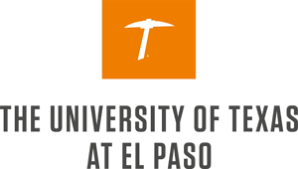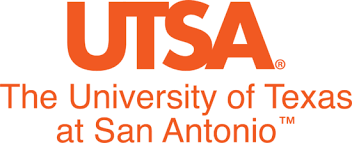Introduction
Aerospace engineering is a specialized field that focuses on the design, development, and testing of aircraft, spacecraft, and related systems and equipment. This discipline integrates principles from various fields of engineering, including mechanical, electrical, and materials engineering, to create solutions for challenges in air and space travel. A degree in aerospace engineering provides students with the technical knowledge and skills needed to innovate and improve technologies related to flight. Core topics typically covered in an aerospace engineering program include fluid dynamics, propulsion systems, structural analysis, avionics, and systems engineering. The curriculum also emphasizes practical applications through laboratory work, simulations, and design projects.
Life as an aerospace engineering student in Texas is both challenging and rewarding. Students in this field engage in rigorous coursework that emphasizes problem-solving, design, and critical thinking. Many programs incorporate hands-on learning through labs, design projects, and internships, providing students with practical experience in addition to theoretical knowledge. Moreover, Texas’s vibrant aerospace industry provides students with numerous networking opportunities, internships, and job placements, making the educational experience more impactful.
Outside of the classroom, students often participate in clubs and organizations related to aerospace engineering, such as the American Institute of Aeronautics and Astronautics (AIAA) student chapter, which provides networking opportunities, professional development, and exposure to industry events. Additionally, Texas’s diverse culture and vibrant cities offer a wealth of recreational and social opportunities, enhancing the overall college experience. The combination of a robust academic environment, practical learning opportunities, and a supportive community makes studying aerospace engineering in Texas an attractive option for many students.
Aerospace Engineering Degree Programs in Texas
The differences between a bachelor’s and master’s degree in aerospace engineering are significant, particularly in terms of depth of knowledge, research opportunities, and career prospects. A bachelor’s degree usually focuses on foundational knowledge in engineering principles, mathematics, and basic aerospace topics, preparing graduates for entry-level positions in the industry.
In contrast, a master’s degree delves deeper into advanced topics, research methodologies, and specialized areas such as propulsion, aerodynamics, or aerospace systems management. It typically requires the completion of a thesis or capstone project, allowing students to engage in original research and contribute to the field’s body of knowledge. In Texas, an overview of both Bachelor’s and Master’s degree programs in aerospace engineering can be found here:
Bachelor’s Degree Programs
University of Texas – Arlington
- Arlington, TX
Credit Hours: 128
Resident Tuition: $9,234 (PYR)
Non-Resident Tuition: $23,726 (PYR)
Program Overview:
UTA offers one of only four aerospace engineering programs in Texas and is the only one in North Texas. Students can complete a fast-track Master’s degree in five years or enhance their studies with a certificate in unmanned vehicle systems. The program provides extensive research opportunities and features unique facilities like the nation’s only university-based arc-heated hypersonic wind tunnel. Graduates may pursue advanced degrees or careers in academia, teaching future engineers.
University of Texas – Austin
- Austin, TX
Credit Hours: 126
Resident Tuition: $10,554 (PYR)
Non-Resident Tuition: $19,320 (PYR)
Program Overview:
Ranked #10 in the nation, UT Austin’s undergraduate Aerospace Engineering program offers a cutting-edge curriculum covering engineering fundamentals, fluid mechanics, controls, and structural dynamics. With 25% of students being women and an average starting salary of $80K, graduates find employment in a wide range of companies and government agencies. The program fosters a close-knit community with over 30 full-time faculty, 550 undergraduates, and 100 graduate students, offering project-based teams, research opportunities, and free tutoring.
Texas A&M University
- College Station, TX
Credit Hours: 132
Resident Tuition: $287 (PCH)
Non-Resident Tuition: $828 (PCH)
Program Overview:
At Texas A&M University, the freshman year curriculum is the same for most engineering programs. Undergraduate students are admitted to the College of Engineering with a preference for their chosen major and follow a common first-year curriculum. The Entry to a Major process encourages students to explore at least three majors that align with their career goals and academic performance. To earn a baccalaureate degree, students must complete the required courses and credit hours outlined in the catalog from their initial enrollment.
University of Texas – El Paso
- El Paso, TX
Credit Hours: 128
Resident Tuition: $3,451 (PCL)
Non-Resident Tuition: $8,286 (PCL)
Program Overview:
The Aerospace and Aeronautical Engineering curriculum prepares students for careers in the aerospace industry or advanced studies by offering courses in aerodynamics, aerospace structures, and vehicle design. The program aims to graduate highly skilled engineers and conduct cutting-edge research. Students gain marketable skills such as confidence in their abilities and critical thinking to analyze and solve problems effectively.
Master’s Degree Programs
University of Houston
- Houston, TX
- Online + Campus
Credit Hours: 30
Modality: Online/On-Campus
GRE: Required
Tuition: $745 (PCH)
Program Overview:
The Houston area is renowned for its aerospace activity, anchored by NASA Johnson Space Center and numerous aerospace-related industries. The University of Houston’s Aerospace Engineering Program offers graduate education for those seeking advanced knowledge, research opportunities, and careers in aerospace. This interdisciplinary program is primarily taught by faculty from the Mechanical Engineering Department, with support from other colleges and departments.
University of Texas – San Antonio
- San Antonio, TX
- Online + Campus
Credit Hours: 30
Modality: On-Campus/Online
GRE: Not required
Resident Tuition: $12,580
Non-Resident Tuition: $28,222
Program Overview:
The MS in Aerospace Engineering at UTSA is designed for students passionate about aircraft and space science, providing fundamental engineering knowledge for careers in the aerospace industry. This allows students to enhance their studies, explore personal interests, or complement their major, helping them stand out in the job market. It offers a valuable addition to students’ academic and professional development.
Texas A&M University
- College Station, TX
- Online + Campus
Credit Hours: 32
Modality: Online/On-Campus
GRE: Not required
Tuition: $39,000 (TTL)
Program Overview:
The Department of Aerospace Engineering’s Master of Science-Thesis Option (MS) requires 32 credit hours, with 24 hours of coursework (including a seminar) and 8 hours of research. Students must write and defend a thesis, and their committee includes at least three graduate-level faculty members, one serving as the primary adviser. Applicants need a bachelor’s in aerospace engineering or a related field, with possible additional coursework required if their degree isn’t in engineering.
University of Texas – Austin
- Austin, TX
- Online + Campus
Credit Hours: 30
Modality: Online/On-Campus
GRE: Not required
Resident Tuition: $16,412 (TTL)
Non-Resident Tuition: $20,845 (TTL)
Program Overview:
The Aerospace Engineering (ASE) graduate program at The University of Texas at Austin is a top-10 nationally ranked program where students conduct cutting-edge research with distinguished faculty. The program offers advanced study and research opportunities leading to a Master of Science in Engineering or a Doctor of Philosophy in aerospace engineering. Graduates pursue careers as engineers, scientists, inventors, astronauts, and leaders in the aerospace field. While a Bachelor’s degree in aerospace engineering or a related field is typically required, students with degrees in science or mathematics may need to complete additional coursework.
University of Texas – Arlington
- Arlington, TX
- Online + Campus
Credit Hours: 36
Modality: Online/On-Campus
GRE: Not required
Resident Tuition: $6,256 (PYR)
Non-Resident Tuition: $16,056 (PYR)
Program Overview:
UTA offers one of the four aerospace engineering programs in Texas and is the only one in North Texas. Students can earn a fast-track Master’s degree in five years or add a certificate in unmanned vehicle systems. The program offers rich research opportunities, including access to the nation’s only university-based arc-heated hypersonic wind tunnel. Graduates can pursue advanced degrees or careers in academia, teaching the next generation of engineers.
ABET-accredited Aerospace Engineering Programs
For aerospace engineering programs, ABET accreditation signifies that the program provides a solid foundation in engineering principles and practices, ensuring that graduates are well-prepared for the workforce. Many employers prefer or require graduates from ABET-accredited programs, as this accreditation provides confidence in the quality of education received. Additionally, graduates from accredited programs are often eligible for professional engineering licensure, which can enhance their career prospects and credibility in the field.
Accelerated Aerospace Engineering Programs in Texas
A 4+1 program is an educational pathway that allows students to earn both a bachelor’s and a master’s degree in five years, streamlining the educational process and reducing the overall time and cost. For instance, the University of Texas at Austin offers a 4+1 option where students can complete a Bachelor of Science in Aerospace Engineering and then transition into a Master of Science in Aerospace Engineering within a single additional year. Texas A&M University also offers a combined degree program that allows students to pursue a bachelor’s degree in aerospace engineering followed by a master’s degree in a related area.
Affordable Aerospace Engineering Programs in Texas
Several Texas universities offer competitive tuition rates for their aerospace engineering programs. Texas A&M University offers one of the most affordable undergraduate aerospace engineering programs in the country, especially for in-state students ($287 per credit hour). Additionally, the University of Texas at Arlington also provides relatively low tuition rates ($9,234 per year for in-state students, $23,726 per year for out-of-state students) compared to many other leading aerospace programs.
The University of Texas at Arlington also provides competitive tuition rates for graduate students, with in-state tuition costs averaging at $6,256 per year and out-of-state tuition costs averaging $16,056 per year.
Career Paths in Aerospace Engineering
Graduates with a degree in aerospace engineering have access to a variety of exciting and rewarding career opportunities. The aerospace sector is vast, encompassing roles in aircraft design, spacecraft development, systems engineering, and research and development. Common job titles for aerospace engineering graduates include:
- Aerospace Engineer: Works on the design and development of aircraft or spacecraft, focusing on various aspects such as aerodynamics, structural integrity, and other materials.
- Systems Engineer: Integrate different components of aerospace systems, ensuring that they work together effectively and efficiently.
- Propulsion Engineer: Specialize in developing engines and propulsion systems, focusing on performance and safety.
- Flight Test Engineer: Responsible for testing aircraft and spacecraft to ensure they meet design specifications and regulatory requirements.
Overall, the aerospace engineering field offers a diverse range of career paths, allowing graduates to apply their knowledge and skills to impactful projects that contribute to advancements in aviation and space exploration.






